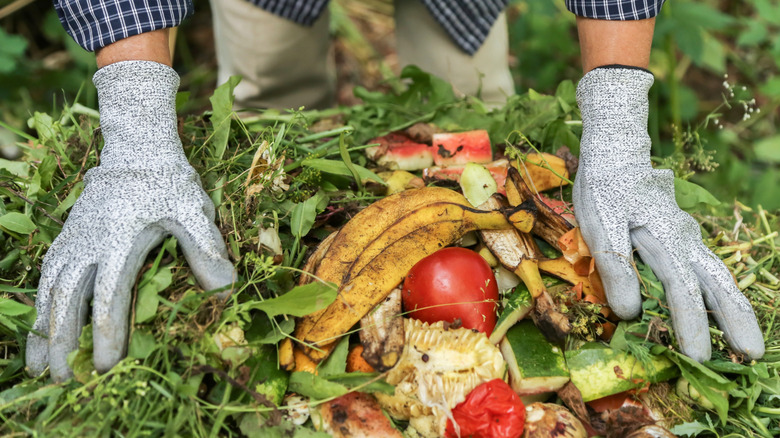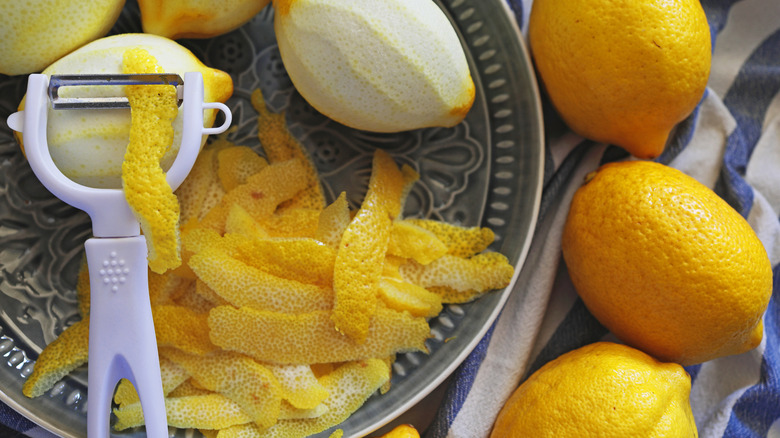The Common Kitchen Scrap You Should Start Adding To Your Compost Pile
Over the last few years, composting has become more popular than ever before, with more people starting their own organic gardens and becoming more environmentally conscious. Getting started is as easy as pulling together yard waste, grass, dirt, and water, as well as some kitchen scraps, and adding them to your compost — one common kitchen scrap that you should start mixing in is lemon peels.
The citrus fruit is surprisingly versatile and can be used in plenty of applications beyond cooking and cleaning. There are actually several beneficial ways to use lemons in your backyard and garden. Lemons, in particular, can boost the acidity of your compost, which is great for a variety of plants and flowers, including raspberries, hydrangeas, and azaleas. The peels also boast nutritional benefits that are added to your compost as they decompose. Among the nutrients the peels contain are potassium, calcium, magnesium, and nitrogen, all of which help with breaking down kitchen waste and creating a more nutritious pile.
What to know about adding lemon peels to your compost pile
Once you start adding lemon peels to your compost pile, you might notice fewer critters hanging around. The scent of lemon is said to act as a deterrent for animals such as skunks, rats, cats, and mice, as well as insect pests, including mosquitoes, cockroaches, and ticks. Using natural repellents, like lemon, can help prevent unwanted infestations while also keeping larger animals from digging through your compost for things they may want to eat.
Although adding lemon peels to your compost is beneficial in the long run, you should not add too many at any one time, which can cause an imbalance. It takes time for the peels to break down. In fact, it can take more than six months of adding browns, such as dried leaves, sawdust, and even paper, and turning over your pile regularly before your compost is ready to be used in the garden. This is especially true if you're throwing in whole peels that haven't been dried out.
If you are looking to speed things up, it's recommended that you cut up your peels into smaller pieces and dry them before adding them to the compost. While it's typically hot enough in the summer to add chopped-up peels to the pile without drying them, once the temperatures drop, layering them on a pan and putting them in the oven on a low heat until they are dry is a good idea.

